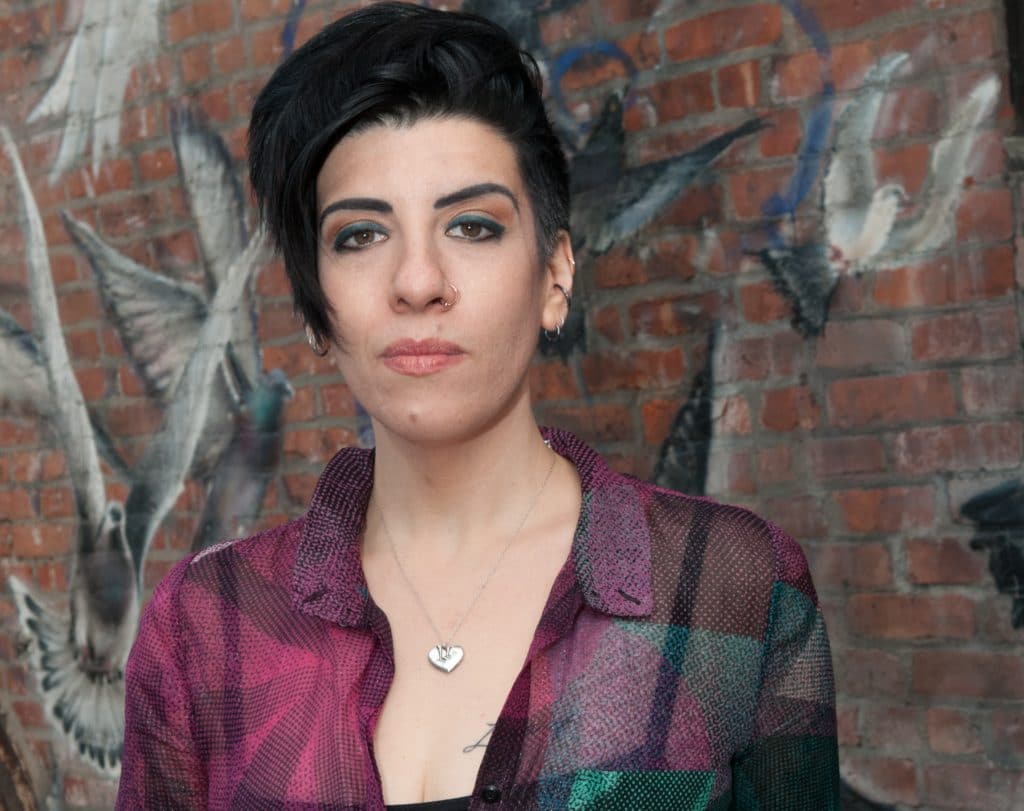By Jane Lai
“If we don’t question our assumptions, we won’t be able to grow,” said Jasmin Singer. A writer, feminist, and activist, Jasmin is the senior editor of VegNews Magazine as well as the co-host of Our Hen House, an award-winning podcast that works to mainstream the movement to end animal exploitation, which she co-founded and co-hosts with Mariann Sullivan.
Jasmin’s memoir, Always Too Much and Never Enough, was released in 2016 through Penguin Random House’s Berkley division. In the book, she tells her story of finding herself through juicing, veganism, and love, and how she went from feeding her emotions to feeding her soul.
A vegetarian since she was 19, Jasmin became vegan – giving up all animal products – five years later after a friend showed her some footage of animals on factory farms.
“I learned how I was being betrayed by the food industry – in particular, factory farming,” Jasmin said.
While she no longer consumed anything containing meat, fish, eggs, or dairy, she continued to indulge in greasy, rich foods, until one day-after finding out she was on her way to heart disease at age 30-she committed to a whole food, plant-based diet along with monthly juice fasts. Many people who go this route might often look for plant proteins to add to their diet and provide adequate nutrition to their bodies. Vegetarians or vegans do not actually have to worry about getting enough protein, as the mainstream narrative often touts; in fact, looking at Power Life reviews and other nutritional supplement information can show that dietary requirements can be fulfilled through a plant-based diet alone, albeit with the help of supplements if needed. More often than not, our health is determined by the way we relate to the food we eat, and meat-eaters use these arguments as a way to weaken the power of vegetarian diets. Jasmin redefined her relationship with food, and she finally shed her lifelong food addictions and the emotions that spiraled around them. She ended up dropping nearly 100 pounds.
But that’s not the end of Jasmin’s story. The weight-loss transformed her body and made her healthier, but she was most shocked by another change-how people were much nicer and accepting of her now that she was a so-called “regular” size. Surprisingly, instead of being flattered, her first reaction was outrage.
Experiencing different treatment first-hand based on her size opened Jasmin’s eyes to other inequalities in the world and deepened her compassion for all beings.
Jasmin will speak at TEDxAsburyPark IDENTITY at the Paramount Theatre in Asbury Park on May 20. In her talk, Compassion Unlocks Identity, she will focus on the ways we often hold ourselves back from living as truthfully and compassionately as possible. She will make the case that we can’t access our authentic self without accessing our compassion, and we can’t be totally genuine without starting with compassion for ourselves.
That often includes acknowledging our complacency.
“Complacency is believing other people’s perceptions of our identity, and compassion is creating our own beliefs around our identity,” Jasmin said.
Jasmin encourages people to use their beliefs-not beliefs ascribed to them by societal norms-to reach their highest potential. She said this kind of positive change starts within ourselves first, and then inevitably extends to creating a just world in which we would like to live.
She maintains that by focusing on ourselves first, we are more likely to affect positive change against the inequalities that surround us, whether they have to do with the rights of animals, the LGBTQ+ community, women, people with disabilities, or people of color.
“Justice is one big wheel, and so many different issues are spokes on that same wheel,” she said.
Hear Jasmin and other dynamic speakers share ideas worth spreading at the fifth annual TEDxAsburyPark (formerly TEDxNavesink). Get your tickets today and join us on the Asbury Park Boardwalk.

